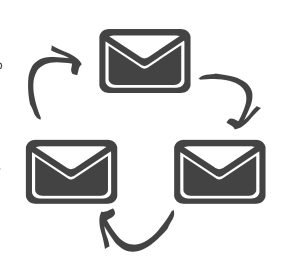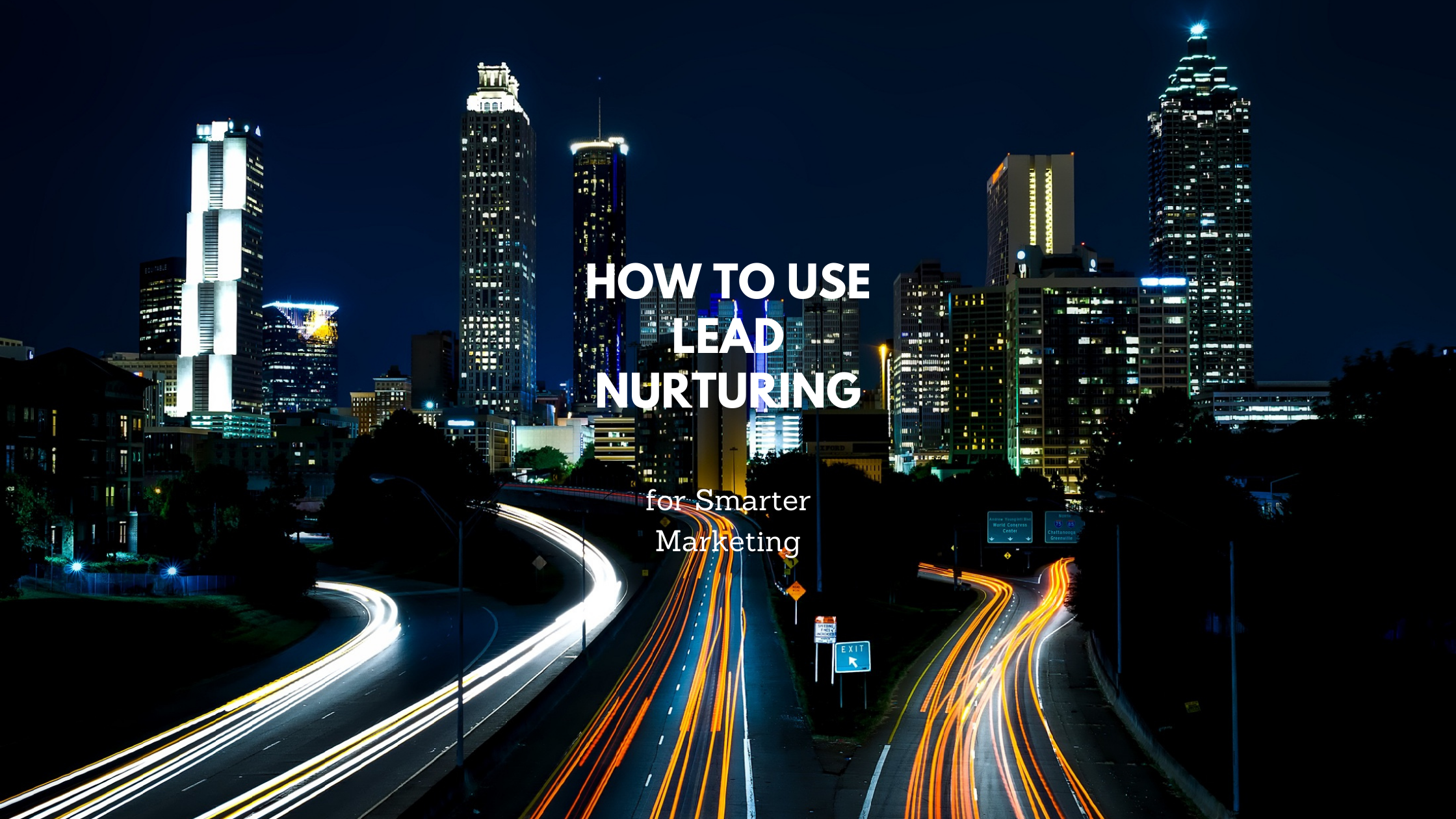
50% of leads are qualified but not ready to buy. So if you are not nurturing them, you are simply burning money.
What is Lead Nurturing?
Lead nurturing is all about understanding the nuances of your leads' timing and needs. It enables marketers to establish contact fast and stay top of mind for prospects.
Lead nurturing is a system that allows you to send an automated series of emails
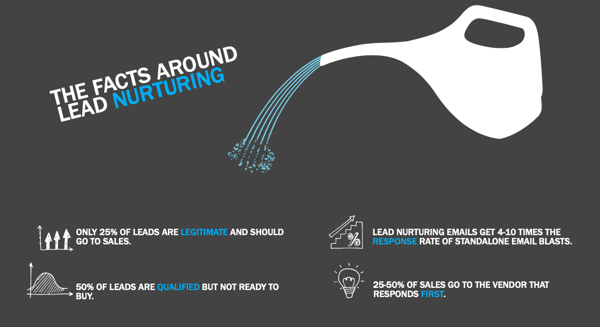
“Lead Nurturing” sometimes goes by other names: marketing automation, drip marketing, auto-responders, etc. Simply put, lead nurturing is a system that allows you to send an automated series of emails to an early-stage lead in order to pre-qualify them before handing them over to your sales team.
As a marketer, you definitely want to capture as much lead information for as many people on your site as you can, but not everyone is ready to talk to sales. Getting leads is awesome - but not all leads are at the point where they can be considered sales-ready. Depending on whose research you read, only 5 - 25% of the traffic on your site is actually ready to do business with you at that moment; the rest are doing research.
- ONLY 25% OF LEADS ARE LEGITIMATE AND SHOULD GO TO SALES.
- 50% OF LEADS ARE QUALIFIED BUT NOT READY TO BUY.
- LEAD NURTURING EMAILS GET 4-10 TIMES THE RESPONSE RATE OF STANDALONE EMAIL BLASTS.
- 25-50% OF SALES GO TO THE VENDOR THAT RESPONDS FIRST.
50% of leads who are qualified to buy are not ready to purchase immediately. If you call these leads up and push them into making a decision right away, you will likely lose them.
Instead, take a look at your existing sales funnel. How long does it typically take a lead to become a customer after his or her first inquiry? Does the sales cycle vary for different types of purchases?
Equipped with the answers to these questions, you can build some effective lead nurturing campaigns and leverage this marketing channel to qualify leads and help your sales organization.
WHY LEAD NURTURING?
“Lead nurturing is all about ” understanding the nuances of your leads’ timing and needs.”
As an inbound marketing tactic, lead nurturing is all about understanding the nuances of your leads’ timing and needs. by getting these details right, you set yourself up for success.
If it typically takes your leads a month to make a purchasing decision, then make sure you’re spreading out your communications to keep them engaged throughout the month. by taking this approach, you save your sales organization time because you educate and qualify the lead over time. This is only one of the reasons you should start doing lead nurturing.
In this section, we will look at some of the other reasons behind launching lead nurturing campaigns.
ESTABLISH CONTACT FAST
Establishing contact quickly is key to actually connect with your leads.
According to InsideSales.com study 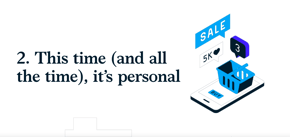
35-50% of SALES GO TO THE VENDOR THAT RESPONDS FIRST TO AN INQUIRY.
A HubSpot study supports this data is showing that response rates decline as the age of a lead increases.
Automated lead nurturing is a great way to maintain engagement when a lead has already made the move to interact with you. And if that lead has stopped visiting your site or reviewing your offers, lead nurturing is a great way to remind them about your business.
 STAY TOP OF MIND
STAY TOP OF MIND
Lead nurturing enables you to build thought leadership. people engage with businesses they know and
trust. The first time someone converts on your website, the likelihood that they really know who you are or understand why they should do business with you is pretty slim. Lead nurturing is an opportunity to show that you are an expert in your field.
Lead nurturing also allows you to maintain consistent communication with your leads. 66% of buyers indicate that “consistent and relevant communication provided by both sales and marketing organizations” is a key influence in choosing a solution provider, according to a Genius.com study. Get off on the right foot, and don’t let leads slip through the cracks with an automated lead nurturing campaign.
LEARN ABOUT YOUR LEADS
Similarly, you can learn more about your leads via this email nurturing and segment your future emails based on what you learn has more effective communications going forward. MarketingSherpa found that segmented emails get 50% more clicks, so you should take any opportunity you have to segment your leads.
Benefits of Lead Nurturing
“If you think email marketing is powerful, you should check out what lead nurturing can do for your business”
Many marketers worship email above other marketing channels. That is understandable to a large degree. Email enables you to establish a relationship with your prospects, stay top of mind, and offer discounts and promotions as the need arises.
However, such one-time promotional emails can be a big turn off for your recipients, prompting them to form a negative opinion of your brand and unsubscribe from your list.
Lead nurturing, on the other hand, introduces a tightly connected series of emails with a coherent purpose and an abundance of useful, relevant content. In this context, lead nurturing offers more advantages than just one individual email blast.
So if you think email marketing is powerful, you should see what lead nurturing can do. In this section, we will explore some of its key benefits, especially in relation to email marketing.
IT IS TIMELY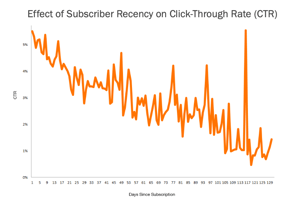
One of the problems with mass email marketing is that you end up not connecting with leads as soon as they subscribe, which is when they’re most interested in hearing from you. Study after study shows that email response rates decline over the age of the lead. In fact, in his Science of Timing research, Dan Zarrella, HubSpot’s social media scientist, discovered that there is a positive correlation between subscriber recency and click-through rate, one of the key engagement metrics. The chart to the right clearly highlights this correlation. Start using lead nurturing campaigns so you can take advantage of this dynamic.
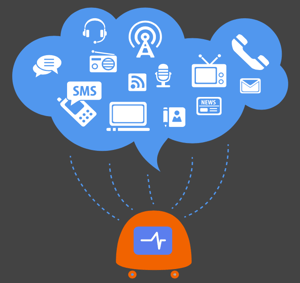 IT’S AUTOMATED
IT’S AUTOMATED
The second major benefit of lead nurturing is that it’s automated. Once you set it up, emails are sent out automatically according to your schedule as new leads come in. This leads to a high return for a low investment.
You might launch the campaigns and forget about them, but the emails will be doing the work for you, helping you qualify leads and push them down the sales funnel faster.
In fact, Market2Lead found that...
NURTURED LEADS HAVE A 23% SHORTER SALES CYCLE.
This piece of data clearly shows the extent to which the marketing team can help with the sales process. Lead nurturing reduces the time a salesperson will have to spend on qualifying or warming up a lead.
IT OFFERS MORE PRECISE TARGETING
Studies show that targeted and segmented emails perform better than mass email communications. Lead nurturing enables you to tie a series of emails to a specific activity or conversion event. In other words, you can craft your follow-up email based on the action a lead has taken on your website, thus showing that you are aware of their interest in the topic and what they might need next. based on this information, lead nurturing emails can highlight reconversion opportunities that tie back to leads’ earlier interests.
For instance, if you are a marketing manager at a restaurant and a prospect downloads your whitepaper about the nutritional value of beets, you can follow up with an email describing which other vegetables possess high nutritional value. The last email in your campaign can explain all the nutritional food you have to offer at your restaurant. In this way, your lead nurturing campaign is highly targeted and much more engaging to the prospect.
COMPARING CLICK-THROUGH & UNSUBSCRIBE RATES IN EMAIL MARKETING & LEAD NURTURING
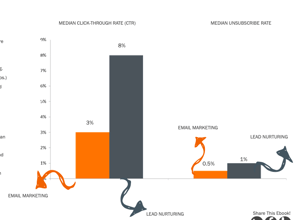
We did an analysis of the HubSpot customer database to compare the performance of key metrics in lead nurturing and email marketing. The sample we analyzed included 1,212 companies using email marketing and 1,241 companies using lead nurturing. (Note that some companies may have been present in both groups.) We looked at both the median and average click-through rate and unsubscribe rate, and found that in both cases, lead nurturing emails have a significantly higher CTR than more generic email blasts.
Interestingly enough, lead nurturing emails also had a slightly higher unsubscribe rate than individual email sends. While this can be viewed as a seemingly negative performance, it actually is an indicator that leads nurturing is doing its job of qualifying leads and eliminating people who are not interested in your company. Only the most engaged leads will move down the sales funnel and can potentially turn into great new customers.
 Before you can get started with lead nurturing, you need to figure out which lead nurturing tools when you’re choosing lead nurturing software that’s right for you, make sure you ask these you’re going to use. That means choosing the software that will run your campaign -- the software questions -- that will define the contacts you want to send to, the emails you want to send, and the events that you want to trigger those emails.
Before you can get started with lead nurturing, you need to figure out which lead nurturing tools when you’re choosing lead nurturing software that’s right for you, make sure you ask these you’re going to use. That means choosing the software that will run your campaign -- the software questions -- that will define the contacts you want to send to, the emails you want to send, and the events that you want to trigger those emails.
At MapleSage, we use HubSpot lead nurturing software. HubSpot lead nurturing software is a core part of all of our inbound marketing software packages, making it an easy and powerful option.
- Is the tool easy to set up and manage? (can I run it myself, or do I need to hire a consultant?)
- Does the software help you grow your contact list-- or is it just resending emails to the same increasingly stale list.
- Does the software integrate easily into the rest of your inbound marketing software? your website? your blogging software? your landing pages? your social media? your SEO tools?
5 Steps To Set-Up Lead Nurturing Campaign
There are certain steps you need - you probably already have some ideas about lead nurturing campaigns that you can launch to shorten the sales cycle of your leads and boost conversions. So how do you get started?
Setting up a lead nurturing campaign is not a science. However, there are certain steps you need to follow in order to ensure the efficiency of your emails. For instance, you shouldn’t be pummeling recipients with sales pitches. Instead, you should start out by sending useful, low-commitment information with content-based calls-to-action. Gradually, you will introduce a middle-of-the-funnel call-to-action that is tightly related to your initial point of contact
In this section, we will review the step-by-step process of setting up a lead nurturing campaign and highlight some best practices along the way.
Determine Your Goals
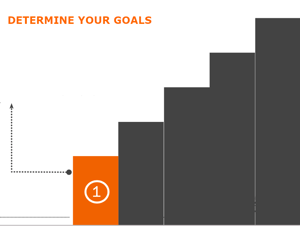
The first step is to determine your goal, which will direct your entire campaign: audience, content, and success metrics.
ARE YOU TRYING TO REAWAKEN COLD LEADS? INCREASE LEAD QUALITY? GENERATE NEW LEADS?
Before you set the goal of your lead nurturing campaign, you should decide what actions make a lead sales-ready. For example, if someone downloads a whitepaper, they could just be doing research and may not be ready to speak with a sales rep. Therefore, you should add them to a lead nurturing campaign that further qualifies them. If that person comes back and requests a demo, that’s a much better indication that they are ready to buy. Now you can send them to a sales rep.

Select a Persona
The second step is to decide whom you are trying to reach.
WHAT PROBLEM ARE YOU HELPING THEM SOLVE?
This is key for helping you create the content for your lead nurturing campaign. your persona should be a pretty vivid picture of whom you’re ideally trying to reach. Go as far as giving them a name, a job, responsibilities, and hobbies. If you haven’t created your buyer persona yet, follow the steps outlined in this blog post.
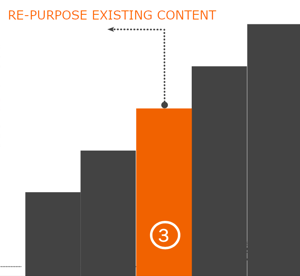 Re-purpose existing content
Re-purpose existing content
Now that you’ve decided what makes a person sales-ready, you can choose which content you should send to your fresh leads. As you might have figured by now, content is a crucial piece of lead nurturing. Just because someone converts on your website, doesn’t mean you should jump straight into sending them an email about requesting a quote or a demo. You need to nurture them through the sales funnel first to make them readier to buy.
INSTEAD OF PITCHING YOUR PRODUCT AS THE GREATEST THING EVER, YOU SHOULD FIRST OFFER VALUE.
Examples of valuable offers include videos, webinars, ebooks, blog posts, and whitepapers. You don’t have to create new content for your lead nurturing emails. If you have a backlog of content, utilize those assets. If they’ve been successful at converting leads in the past, there’s a high chance the leads you’re nurturing now will find value in them, too.
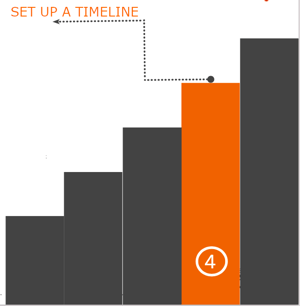 Set-Up Timeline
Set-Up Timeline
Your business has a typical sales cycle, and so should your lead nurturing campaigns. Typically, it’s a good idea to send two to three emails to your prospects in a lead nurturing campaign.
75% of LEADS BUY WITHIN 18-24 MoNTHS.
This means you might want to space out your emails monthly. with lead nurturing, patience is a virtue. It’s important to remember not to rush into the sale. Instead, let it take its natural course.
Don’t be afraid to experiment with different times and see what resonates with your audience best. For example, if your typical cycle runs 30 days, you may want to set up a campaign for emails to be sent out on the 1st, 10th, and 20th days after conversion.
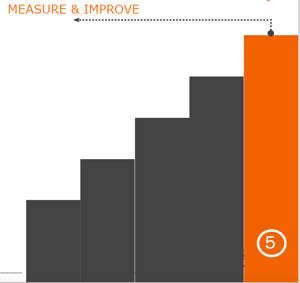 Measure & Improve
Measure & Improve
The last step in setting up a lead nurturing campaign is to ensure the accurate tracking of your emails. you need to make sure you know what’s working and what’s not so you can continue to improve.
HAVE METRICS IN PLACE THAT TIE TO YOUR GOALS SET IN STEP ONE.
Looking to drive branding and awareness? Measure branded search or direct traffic to your website. Looking to increase lead quality? Measure quality conversions or lead ratings over time. Interested in generating new leads or email opt-ins? Measure how you’re growing your database from your lead nurturing efforts.
As your campaigns run, make sure to experiment with the offers you send, the subject lines, and the calls-to-action found within the email. There’s always room to improve your campaign. we will cover more about metrics later in the last chapter of this ebook
TYPES OF LEAD NURTURING CAMPAIGNS
“What type of lead nurturing ” campaign fits into your Inbound Marketing strategy?
Now that you have learned the step-by-step process of creating lead nurturing campaigns, you are probably wondering what types of emails you should write. How would they fit into your general inbound marketing strategy? Is there one type of lead nurturing campaign that is better than the other for your business needs?
The short answer is, yes. Some types of lead nurturing campaigns may not make a ton of sense for your company. For instance, if you don’t host any events, you won’t need to worry about event follow-up campaigns. you need to start working in the right direction in order to see results and generate a good RoI for your efforts.
In this section, we will review a few of the most common lead nurturing campaign types.
EDUCATIONAL EMAIL CONTENT 
You could start with some general educational emails that feature content demonstrating the value your company can offer. These emails shouldn’t be sales-driven. for example, the messages could offer people links to more whitepapers, blog articles, and videos that you genuinely believe will be helpful to the recipients’ needs and goals.
“Send emails that educate,” advises David Meerman Scott. If you’re a sporting goods manufacturer, for instance, don’t just send emails that sell your equipment. Instead, try to teach people new techniques related to working out.
 PROMOTIONAL EMAIL CONTENT
PROMOTIONAL EMAIL CONTENT
Mix in some promotional emails along with the educational ones. If you have a current offer that you can advertise, create a campaign around it. It’s best to try to find a way to avoid getting spammy with these emails, as some will end up in recipients’ junk folders, some will prompt people to unsubscribe, and some will simply go unread.
Instead, focus on building enticing and valuable emails (note: subject line is key!). “There is no rule that says that when you do email marketing, you have to be deathly boring,” says David Meerman Scott. on the contrary, use exciting language and try to pique people’s curiosity with humor, controversy, or data.
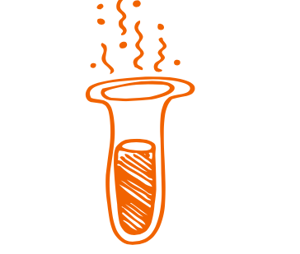 BEST PRACTICES EMAIL
BEST PRACTICES EMAIL
This type of lead nurturing campaign also counts as an educational content email. The key here is to create a theme around best practices that you can offer to your leads, and make sure the email series is closely connected to their initial conversion or interest. for instance, if someone expressed interest in learning about nutritional foods, you can send them an email with best practices to maintain a healthy and nutritional diet. That will keep your recipients engaged and anticipating your next piece of communication.
 DEMO/PRODUCT EMAIL
DEMO/PRODUCT EMAIL
While we generally encourage you to send educational emails, your mix of lead nurturing campaigns should also include some product-specific emails. They shouldn’t be too frequent, and they don’t have to be boring. Make them highly targeted and create a clear connection between them and the first emails in your lead nurturing series.
Did a lead click on product info in an email or on your website? Then perhaps they would be interested in checking out a demo or receiving a free trial offer in order to delve a little deeper and get a closer look at your product/service. Send them an email invitation to a demo.
Lists are always a good way to attract someone’s attention. Some of the best blog articles are,
in fact, lists of useful content. you should try out this same approach when setting up your lead nurturing emails. Recipients will most likely engage with your content and check out the suggested resources you have curated for them. for instance, if someone watched your video about ski equipment, you can follow up with a list of ski equipment blog posts that you think are going to be useful to them.
 PERSONAL EMAIL
PERSONAL EMAIL
If a lead has gone through the content map, down the sales funnel, and is getting closer to the bottom, it may be a good idea to send a more personal and targeted email, perhaps from a sales team member. That way, they get a more personal touch, have a chance to ask specific questions and get to talk to a real person rather than being a part of an email group. Humanizing the brand and giving some extra attention can sometimes be just the ticket to converting a potential customer to an actual customer.

A LIST OF RESOURCES
Lists are always a good way to attract someone’s attention. Some of the best blog articles are,
in fact, lists of useful content. you should try out this same approach when setting up your lead nurturing emails. Recipients will most likely engage with your content and check out the suggested resources you have curated for them. for instance, if someone watched your video about ski equipment, you can follow up with a list of ski equipment blog posts that you think are going to be useful to them.
HOW TO OPTIMIZE LEAD NURTURING CAMPAIGNS
In order to maximize the value by now, you have probably decided what types of lead nurturing emails you want to create. In order to maximize the value you get out of these emails, you’ll need to optimize them.
You might be surprised to learn that there are quite a few elements about a lead nurturing email that you can optimize: whom the message is coming from when it is getting sent out, what the subject line is. All this is very similar to the best practices in email marketing.
In this section of the ebook, we will discuss how you can go about optimizing your individual emails as well as your overall lead nurturing campaigns.
PERSONALIZE YOUR VOICE 
- If possible, send your emails from a real person, not from a generic mailing list like marketing@yourcompany.com, and make sure your “reply-to” address is a real person as well. This lets people know that you care about hearing from them by allowing them to reply to a real person.
- personalize your email in any way that you can. Do you have the recipient’s first name? Company name? Do you know how he/she first found out about you?
Including this information in your emails indicates you’re paying attention to who they are and not just sending out blast emails to “ any email address you can get.
- Write emails that are authentic and approachable. be human in your marketing efforts!
KEEP IT SHORT
This is not the time to worry about fonts or adding images or custom HTML. The lead should be able to glance at your email and, within five seconds, know the value it provides to them.
Information overload happens quickly in an email: marketers are often tempted to add secondary calls-to-action or unrelated links. your messages need to be quick and to the point. otherwise, you risk increasing your unsubscribe rate and subtracting from the effectiveness of your campaign.
The lead should be able to glance at your email and, within five seconds, know the value it provides to them.
GET THE TIMING RIGHT 
Timing is always important when nurturing your leads. you can easily upset people by emailing them too much (daily? hourly?) or too little (long after they’ve forgotten about your company). There is a delicate balance when playing with the timing of your emails, and your best bet is to experiment to figure out what works best. Here are some tips to help get you started:
- Emailing someone every day for a month is never a good idea, and it’s a fast way to encourage leads to mark your emails as SPAM or to unsubscribe. Remember that, while making the sale is your top priority, buying (right now) might not be the top priority of your lead. Helping to set an urgent tone is key in the sales process, but there is a delicate balance between setting the right tone and being annoying.
Don’t wait for six months after the lead was on your site to nurture them.
78% of SALES THAT START WITH A WEb INQUIRY GET WON BY THE FIRST COMPANY THAT RESPONDS.
Experiment with unconventional timing. In the Science of Timing, Dan Zarrella discovered that weekends can actually be effective at attracting people’s attention. So don’t be afraid of starting your lead nurturing campaign on a Sunday, for instance.
 DON’T IGNORE SOCIAL MEDIA
DON’T IGNORE SOCIAL MEDIA
There is an interesting dynamic between social media and emails. The two channels complement each other and help you stay top of mind for your community. Social media is a great way to stay in touch with leads over time and keep them updated on your business. So what can you be doing from a lead nurturing perspective to leverage the power of social media?
Give people the chance to share your offer with their network. If they find your offer useful and highly targeted, they will most likely be open to spreading the word about it. That will give you an opportunity to generate new leads and create buzz around your brand. So include social media sharing links in each of your lead nurturing emails and see if people click on them.
Make sure your emails are optimized with social media following links/icons. Let people decide if they would like to receive updates from you via email, on social media, or both. There is an expectation that social media updates are more frequent, so if your recipients are interested in joining you on Facebook or Twitter, that’s a great sign.
 USE CLOSELY RELATED CONTENT
USE CLOSELY RELATED CONTENT
Send your leads content that’s closely related to why you have their email address and that addresses their needs and interests.
- At a minimum, you should know why you have their email address. Did they convert on an ebook A or webinar B? Did they put their business card in your fishbowl at conference C? Make sure your nurturing campaign is related to this initial topic that drew them to you.
- You might have made educated guesses about which types of content your subscribers will be interested in, but you can also check if your approach was effective. Monitor clicks and see what content pieces resonate better with your recipients. This will allow you to improve your lead nurturing campaigns down the road.
- Update your emails as things change. your industry isn’t static, your offers aren’t static, and your lead nurturing shouldn’t be static either. Make sure you update your lead nurturing campaigns on a regular basis to keep them relevant and interesting.
- WHITEPAPER ON TOPIC X
- WEBINAR ON TOPIC X
- DEMO TAILORED TO TOPIC X
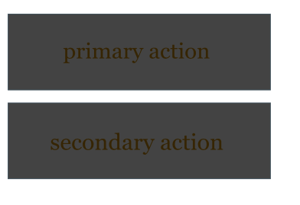 ALWAYS INCLUDE A CALL-TO-ACTION
ALWAYS INCLUDE A CALL-TO-ACTION
The secret to effective lead nurturing is to collect as much information as you can about your leads, and then use it to be relevant and interesting.
Including calls-to-action (cTAs) is a great way to collect these types of insights. In fact, you shouldn’t be sending an email without a call-to-action.
IF YOU AREN’T SURE ABOUT WHAT CTA TO INCLUDE, THEN GO BACK TO STEP ONE AND THINK ABOUT THE GOAL OF YOUR CAMPAIGN.
Calls-to-action can help you learn more about your leads’ interests. what they click on indicates what they want to learn more about. This provides valuable information to your sales team, and it also helps you understand which types of content to use in future nurturing efforts.
Make sure your calls-to-action are clear and actionable. Tell your lead exactly what you want them to do and why they should do it.
Try to include a call-to-action in the first paragraph of your email. People don’t have time to read long, drawn-out emails, so keep it short and sweet, and tell them what to do right upfront.
 WRITE COMPELLING SUBJECT LINES
WRITE COMPELLING SUBJECT LINES
Headlines are the most important element not only of your blog posts but also of your emails. You need to capture readers' attention fast and pique their curiosity. There are a couple of techniques you can use to make this happen.
- Write a clear and direct subject line that will tell your recipients exactly what they’re going to get. Be as specific as possible.
- Write a title in a way that creates a sense of urgency or importance. you want people to feel enticed to read your email when they first see the title.
ENSURE THE MOST COMPELLING PART OUR MESSAGE IS VISIBLE TO GET YOUR EMAILS OPENED.
- One important quality that marketers often forget about is the length of their subject line. This becomes extremely important in a world where mail clients display only a certain number of characters and mobile usage is growing. As the content Strategist writes, “Ensure the most compelling part of your message is visible to get your emails opened.” In his The Science of PR research, Dan Zarrella noted that the most viewed press releases have a subject line that is in the 80- 140 character range.
EXAMPLES OF SUCCESSFUL CAMPAIGNS
It’s difficult to apply best practices
So far in this ebook, we have reviewed some optimization best practices for lead nurturing campaigns. However, it is difficult to apply these practices if you haven’t seen real examples of what successful lead nurturing campaigns can look like.
That is why we looked into our customer base and found case studies of companies seeing great results from their lead nurturing campaigns. These are examples that not only follow some of the best practices we have discussed so far but also point out the real results emerging from such marketing efforts. The key metric that
We have focused on in these case studies is click-through rate (CTR) because it is representative of the way recipients engage with emails and is a clear signal of interest.
If you haven’t seen real examples of what success looks like.
So let’s look at these examples!
 WHAT PERSONALIZATION LOOKS LIKE
WHAT PERSONALIZATION LOOKS LIKE- COMPANY: THE RETAIL DOCTOR
- BEST PRACTICE: PERSONALIZATION
- RESULTS:17.5% CTR
The example below is from HubSpot customer Bob Phibbs, a retail speaker, and consultant. He has personalized his lead nurturing campaign to the fullest by including personalization in the “from name,” “reply-to” email address, subject line, greeting, and signature. The second sentence in his email is a call-to-action, taking leads to a landing page that will further qualify them.
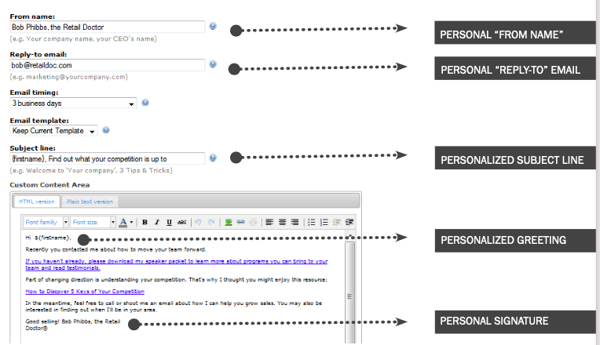
- PERSONAL “FROM NAME”
- PERSONAL “REPLY-To” EMAIL
- PERSONALIZED SUBJECT LINE
- PERSONALIZED GREETING
- PERSONAL SIGNATURE
 HOW TO USE CLOSELY RELATED CONTENT
HOW TO USE CLOSELY RELATED CONTENT- COMPANY: HUBSPOT
- BEST PRACTICE: EDUCATIONAL
- RESULTS: 18.61% CTR
This is the first email in HubSpot’s SEO-related lead nurturing campaign, and it gets sent to any lead that converts on an offer associated with search engine optimization. As you can see below, the email seeks to be useful and engaging without being sales-oriented.
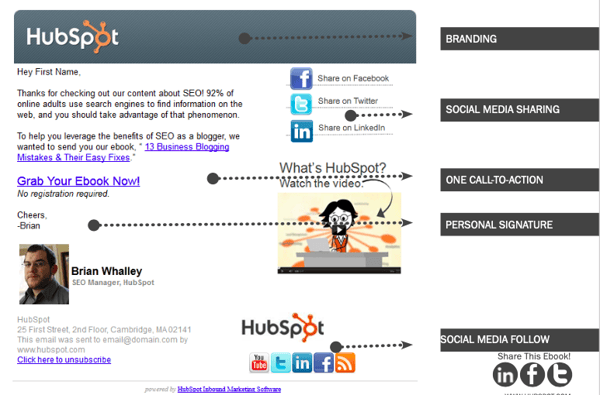
- BRANDING
- SOCIAL MEDIA SHARING
- ONE CALL-TO-ACTION
- PERSONAL SIGNATURE
- SOCIAL MEDIA FOLLOW
WHAT COMPELLING SUBJECT LINES LOOK LIkE
 COMPANY: PROOFREAD NOW
COMPANY: PROOFREAD NOW- BEST PRACTICE:
- SUBjECT LINES
- RESULTS: GREAT CTRS!
The screenshot below is of a lead nurturing campaign with well-optimized subject lines.
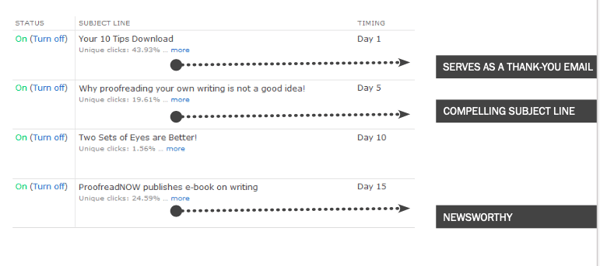 The first email serves as a so-called ‘thank-you’ email, the message people receive when they fill out a form on your website. The second subject line in the series is compelling because it highlights some critical information that recipients can learn from. The last email in the series has a newsworthy element that piques people’s curiosity and prompts them to engage with the content inside.
The first email serves as a so-called ‘thank-you’ email, the message people receive when they fill out a form on your website. The second subject line in the series is compelling because it highlights some critical information that recipients can learn from. The last email in the series has a newsworthy element that piques people’s curiosity and prompts them to engage with the content inside.
- SERVES AS A THANk-YOU EMAIL
- COMPELLING SUBJECT LINE
- NEWSWORTHY
- SUCCESS STORY:
LEAD NURTURING HELPS A STAffING AGENCY GET ‘READY-TO-BUY’ LEADS
Aclipse is a staffing agency that connects enthusiastic college graduates with the best teaching jobs in Asia. Before starting lead nurturing Aclipse had trouble attracting talent that was ‘ready to buy.’ Aclipse solved this problem with a comprehensive inbound marketing campaign, including lead nurturing (they used HubSpot lead nurturing tools).
 REBECCA MCNEIL,
REBECCA MCNEIL,
MARKETING DIRECTOR, ACLIPSE
Rebecca McNeil, Aclipse’s marketing director, explains the results: “Landing pages and lead nurturing campaigns enable us to reach out to people who are clearly interested in teaching English overseas even though they haven’t actually completed the application yet. If we didn’t have lead nurturing I think we’d miss out on a lot of great opportunities. people need a lot of information before they’re ready to commit.”
If we didn’t have lead nurturing I think we’d miss out on a lot of great opportunities. People need a lot of information before they’re ready to commit.
HOW TO MEASURE YOUR LEAD NURTURING CAMPAIGNS
Tracking your progress will allow measuring progress
If you have followed the suggestions and best practices above, you are surely on the right track to creating stellar lead nurturing campaigns. However, the most precise way of knowing how you are truly performing is to keep an eye on some key metrics.
In order to improve the performance of your lead nurturing campaigns, you need to be engaged in ongoing measurement. Tracking your progress will allow you to see what is working and what isn’t. what is more, you will have a chance to optimize along the way and improve performance.
So what metrics should you be paying attention to? one can easily get overwhelmed with metrics, so in this section, we will cover the most important metrics you should consider. You can see what is working and what isn’t.
CLICK-THROUGH RATE
Click-through rate is the proportion of the audience who clicked on one or more links included in your lead nurturing email message.
Organizations can calculate CTR either by dividing unique clicks by the number of emails delivered, or by dividing total clicks – including multiple clicks by the same recipient – by the number of emails delivered. Either method works, as long as you use the same approach consistently.
Click-through rates can help you determine whether the content you’re offering in your lead nurturing campaigns is appropriate for the audience you’re segmenting or their stage in the sales process. If you’re offering more product-focused content, such as a free product trial, and you find that your email recipients aren’t clicking on it, this may mean they aren’t ready for this type of content and may still need to be nurtured with more top-of-the-funnel content like educational ebooks, webinars, or blog posts. Furthermore, if your recipients are no longer clicking on top-of-the-funnel offers, you might deduce that they’re ready for more product-focused offers.
NEW LEADS
If the goal of your lead nurturing campaign is to generate more leads, then that’s something you need to be tracking. Are people sharing your emails through social media or forwarding them to their network? If existing contracts are spreading your content, they increase your chances to reach new audiences.

CONVERSION RATE
Conversion rate refers to the percentage of recipients who clicked on a link within an email and completed the desired action, such as filling out an offer form or purchasing a product. Like click-through rates, conversion rates can also be an indication of the effectiveness of the offer you’re sending or the lead’s stage in the sales process.
IF CONVERSION RATES ARE SOARING, YOU’RE LIKELY OFFERING CONTENT THAT IS IN LINE WITH YOUR LEADS’ NEEDS AT THE TIME.
If not, you might need to adjust the types of offers you’re sending at different points in the nurturing process.
How many of the people who converted to the action you promoted through your lead nurturing campaign turned into customers?
 UNSUBSCRIBE RATE
UNSUBSCRIBE RATE
The unsubscribe rate is the percent of recipients who click the “unsubscribe” link at the bottom of the email (this link is included by default and required by law).
THE UNSUBSCRIBE RATE SHoULD BE LESS THAN 1% FOR A GOOD CAMPAIGN.
When subscribers are unhappy with your emails, they will unsubscribe. However, many recipients don’t even bother going through the formal unsubscribe process. They’ll just stop opening, reading, and clicking on your email messages. What is worse, they can mark your emails as spam. checking your monthly unsubscribe rate is helpful for calculating your overall list growth rate, and to watch for sudden spikes after a particular email campaign.
However, if you want a metric that shows you engagement and interest, you should turn to click-through and conversion rates.
 MAKE DATA ANALYSIS EASIER
MAKE DATA ANALYSIS EASIER
Data analysis can be one of the most difficult pieces of lead nurturing. That’s not because it’s hard to analyze the data, but because it
Can be hard to collect the data. If multiple software tools touch your lead nurturing, you could run into this problem -- you might find yourself collecting your leads in one application, your click-through rate in another, and your conversion rate in an excel spreadsheet. That’s a lot of work.
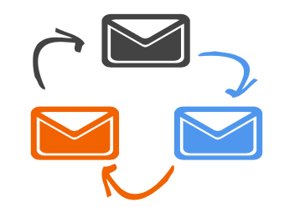 ANSWER THE MOST IMPORTANT QUESTION IN ANY OF YOUR LEAD NURTURING CAMPAIGNS: IS IT WORKING?
ANSWER THE MOST IMPORTANT QUESTION IN ANY OF YOUR LEAD NURTURING CAMPAIGNS: IS IT WORKING?
HubSpot’s lead nurturing software solves this problem by combining all of the pieces of inbound marketing into a single tool. This will make it easy to answer the most important question in any of your lead nurturing campaigns: Is it working?
In the section above, we highlighted some of the key metrics you need to be tracking in order to determine whether your lead nurturing program is performing well or whether it needs some tweaking.
HOWEVER, NOT ALL OF THE BENEFITS FROM YOUR LEAD NURTURING CAMPAIGN CAN BE ASSIGNED A CLEAR DOLLAR VALUE.
For instance, there is a lot of positive impacts related to engagement of leads, staying top of mind, and generating buzz around your brand. In other words, lead nurturing can positively impact other marketing channels, such as social media and referrals. Stay aware of this influence, and make sure you are collecting anecdotal evidence from your sales organization in terms of lead quality. Your sales team will surely have some great stories to share!
CONCLUSION & ADDITIONAL NOTES
All industry research shows that businesses haven’t adopted lead nurturing to the extent that they have embraced other tools, such as email marketing or social media. However, all industry research shows that nurturing your leads, keeping them engaged with your content on an ongoing basis, and gradually introducing them to more advanced stages of the sales cycle can only benefit your bottom line.
Among some of the key benefits of lead nurturing is that it enables marketers to establish contact with their fresh leads fast and stay top of mind for potential, and even current, customers. In comparison to email marketing, lead nurturing is also relatively easy to set up because it is automated and doesn’t need a ton of maintenance over time.
creating the emails in a lead nurturing campaign is the most time-consuming step of the entire process. You need to first determine your goal, know whom you will target, and identify which content you will use to reach the desired results.
Nurturing your leads can benefit your bottom line.
 GET EFFECTIVE AT LEAD NURTURING
GET EFFECTIVE AT LEAD NURTURING
Create optimized lead nurturing campaigns, and get better at engaging your leads: Get a free inbound marketing assessment today.
The results you seek to achieve can vary from increasing your middle-of-the-funnel conversions and generating new leads to keeping your existing contacts engaged and interested in your brand.
If you are in the first stages of setting up your lead nurturing campaign, you might feel confused about what goal you should pursue and how you can do it most effectively. This is the tough part for many marketers, so you are definitely not alone in the struggle. Just get started, be aware of some of the best practices shared in this ebook, and learn from the results you are generating. They will point you in the direction you need to take to master lead nurturing for business.


